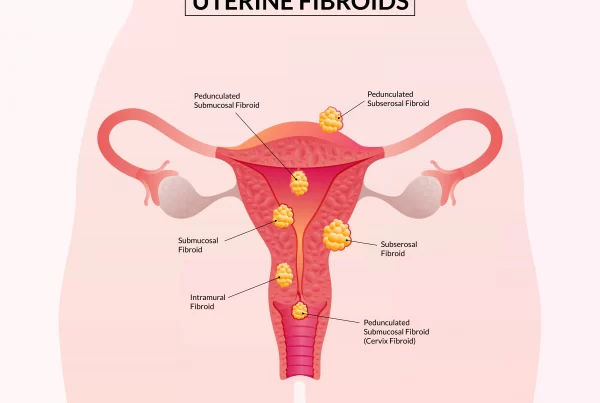
March is an exciting month as International Women’s Day falls on 8 March 2019 and it is also Endometriosis Awareness month. We at SMG Women’s Health strongly believe in equipping women with the right knowledge to take care of their health and wellness. Hence, for the month of March, we will be sharing a video every week, featuring different women’s health issues that ladies should know about.
Our first video is on endometriosis. There is a lot of information out there about endometriosis but we have consolidated everything you need to know right in this article with A/Prof Fong’s help.
What is Endometriosis?
Endometriosis is a medical condition where tissue that forms the lining of your uterus (also known as the endometrium) grows outside of the uterus. It can grow on ovaries, fallopian tubes, bowel and even the tissue in the pelvic region.
What are Some Symptoms I may Face if I Have Endometriosis?
- One of the most common symptoms is having painful and heavy menses (medically referred to as dysmenorrhoea).
- You also may have irregular periods.
- Sometimes the pain is so debilitating that you might have to take MC from school/work. A/Prof Fong has seen patients who have even experienced near faint spells simply from the pain of their periods.
- If you find yourself taking more painkillers to lessen the period pain, that could also be a sign of endometriosis.
- Pelvic or abdominal pain and pain during sexual intercourse are also some other common symptoms.
A/Prof Fong recommends ladies who are facing any of the above symptoms to visit a gynaecologist as they will be able to diagnose the condition and help you feel better.
What is the First Gynae Check for Endometriosis like?
If a gynaecologist suspects you have endometriosis, they will generally perform an ultrasound scan. This helps your gynae better assess the severity of the endometriosis and recommend the next best course of action. In the video, A/Prof Fong shows how an example of what endometriosis looks like on an ultrasound scan.
What are My Treatment Options if I have Endometriosis?
The treatment options depend on 3 main factors – age, the severity of symptoms and the desire to get pregnant.
There are 2 broad treatment categories: medical and surgical. Medical treatment would involve hormone suppression with either oral medication or injections. Surgical treatment as the name suggests, involves surgery to remove the endometriosis. It is to remove the cysts and deep endometriosis.
Endometriosis can be a progressive condition. Therefore, it is important to seek treatment early so that there are more treatment options available. Endometriosis may be a chronic condition too, so seek the help of a gynaecologist to fully understand how you can manage the symptoms. Speak to them about the support available to manage this condition. There are also plenty of support groups. Remember you are not alone in this!



